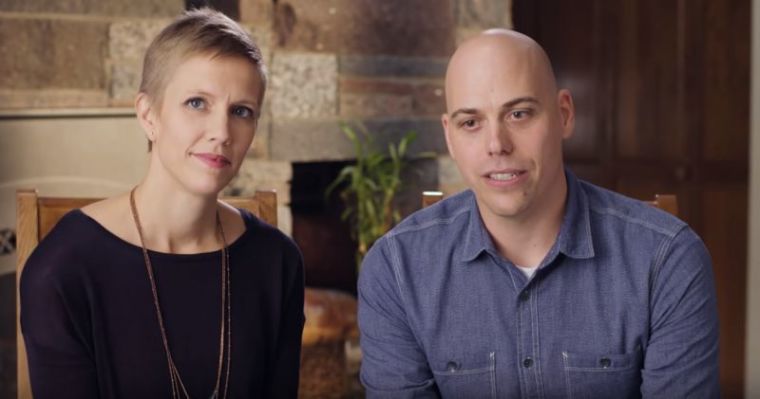Christians cannot be forced to make gay wedding videos, rules US appeals court

An appeals court has ruled in favor of Christian filmmakers who had been told by Minnesota officials that they could not refuse to make videos for same-sex weddings on the grounds of religious objections.
A three judge panel of the United States Court of Appeals for the Eighth Circuit decided last Friday that the Minnesota Human Rights Act violated the First Amendment rights of Carl and Angel Larsen of Telescope Media Group.
The decision largely overturned a lower court ruling against the Larsens and remanded their request for an injunction against the MHRA back to the district court level.
Circuit Judge David Stras, author of the court opinion, wrote that "antidiscrimination laws, as critically important as they are, must yield to the Constitution."
"Indeed, if Minnesota were correct, there is no reason it would have to stop with the Larsens. In theory, it could use the MHRA to require a Muslim tattoo artist to inscribe 'My religion is the only true religion' on the body of a Christian if he or she would do the same for a fellow Muslim, or it could demand that an atheist musician perform at an evangelical church service," wrote Judge Stras.
"The district court also ruled that the Larsens could not seek relief on various other constitutional theories. We largely agree that these claims fail. But one—the free-exercise claim—can proceed because it is intertwined with their free-speech claim."
Circuit Judge Jane Kelly authored an opinion that concurred in part and dissented in part, arguing that while objections to same-sex marriage are protected by the First Amendment, such protections should not apply to businesses.
"The Larsens remain free to communicate any message they desire—about same-sex marriage or any other topic—or no message at all," wrote Judge Kelly.
"What they cannot do is operate a public accommodation that serves customers of one sexual orientation but not others. And make no mistake, that is what today's decision affords them license to do."
In December 2016, the Larsens filed a lawsuit against the MHRA's ban on sexual orientation discrimination, arguing that the measure would force them to film same-sex weddings.
U.S. District Court Judge John Tunheim ruled against the Larsens in September 2017, concluding that the law is "neutral" in its application and dismissing the Larsens' concerns as "immaterial."
"... when a person views a wedding video, there is little danger that they would naturally attribute the video's messages to the videographer," wrote Judge Tunheim, adding that "the Larsens can easily disclaim personal sponsorship of the messages depicted in the wedding videos they create for clients."
"For example, the Larsens could post language on their website stating that while they follow applicable law, and thus serve couples regardless of protected status, they are opposed to same-sex marriage."
The Larsens, who are represented by the Alliance Defending Freedom, appealed the decision to the Eighth Circuit, with arguments heard before the panel last October.
Courtesy of The Christian Post











